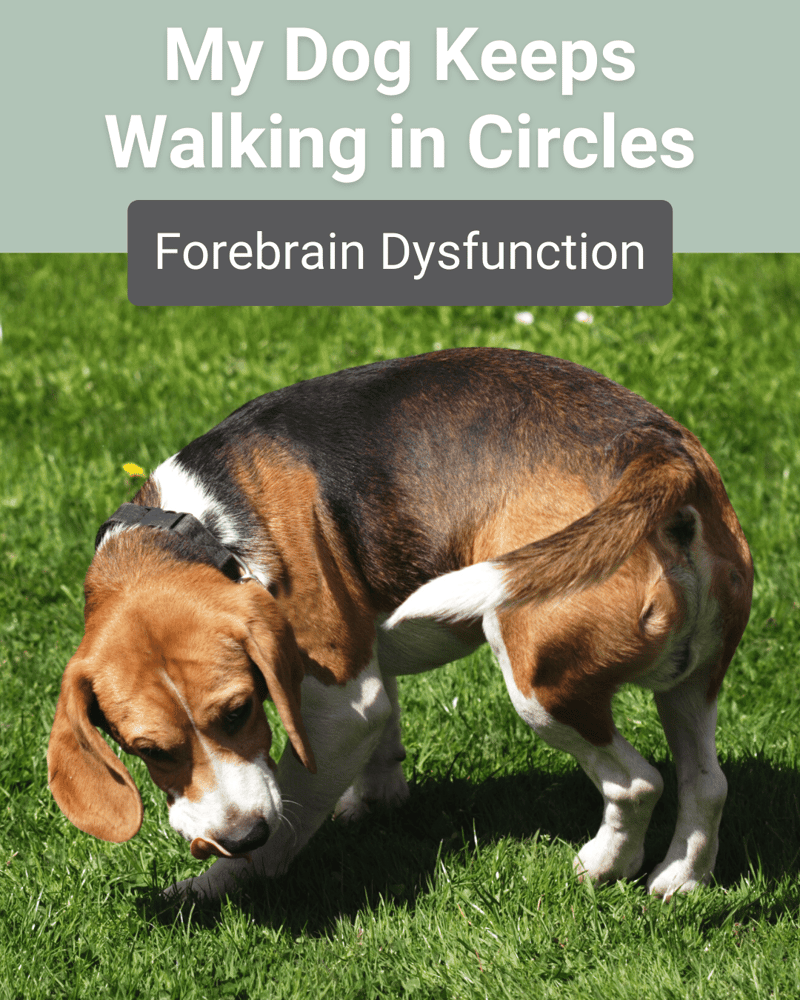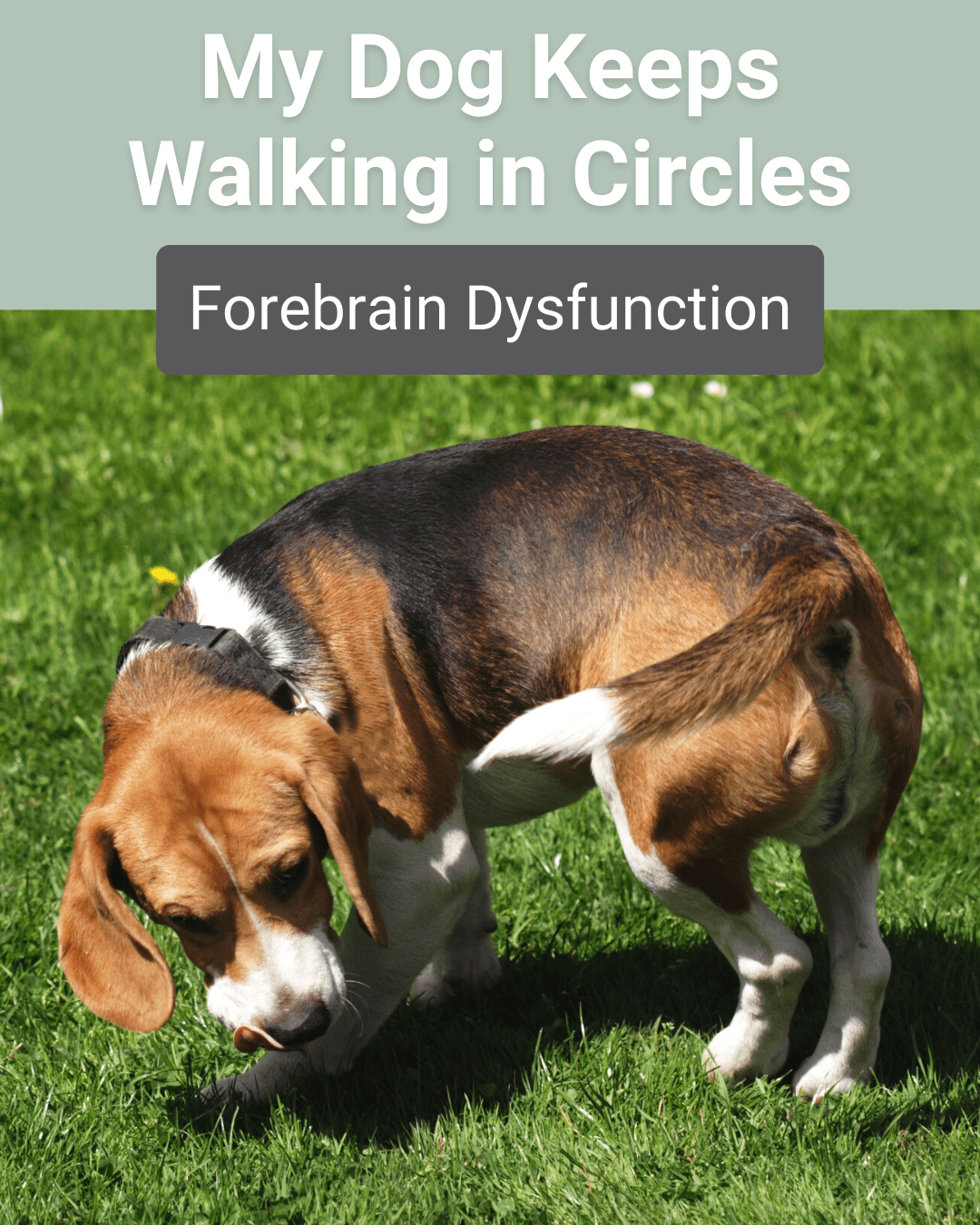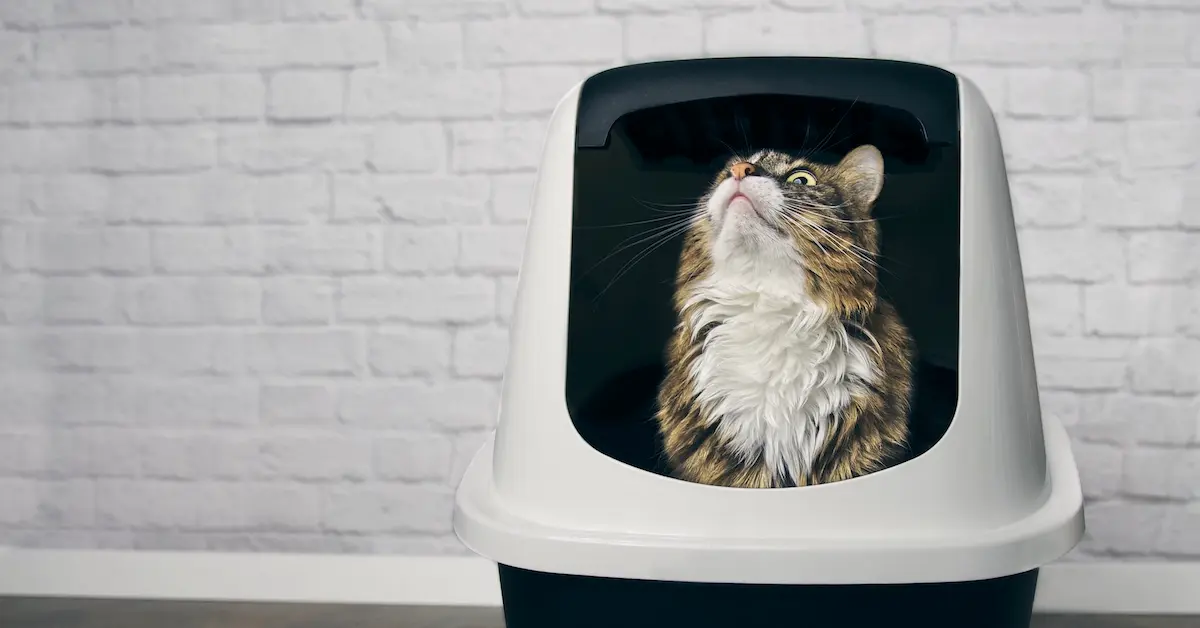If your dog keeps walking in circles, it could be due to various reasons such as vestibular syndrome, ear infections, anxiety, or neurological issues. Walking in circles may also be a sign of dementia in dogs, especially in senior pets.
Identifying the underlying cause is essential to ensure your dog’s well-being. In some cases, circling behavior could indicate a more serious condition like brain disease or a brain tumor. Observing any additional symptoms or changes in behavior can help pinpoint the cause of your dog’s circling behavior.
Consulting with a veterinarian is recommended to properly diagnose and address the issue. Understanding why your dog is walking in circles is crucial for providing the necessary care and support for your furry friend.

Credit: m.youtube.com
Common Reasons
Ear Infections
An ear infection is one of the most common reasons why dogs walk in circles. It usually presents with additional symptoms such as offensive smells coming from the ear, redness, head shaking, and scratching at the ear.
Brain Diseases
Beyond behavioral issues, dogs may also circle due to neurological issues. For instance, seizures are the most common neurological reason for pet parents to seek vet help. Most seizures are caused by epilepsy, which can be hereditary in dogs. After a seizure, your dog might be disoriented and walk in circles.
Anxiety
Signs and symptoms of dementia may include restlessness. Your pet may wander around the house and be uninterested in remaining in one spot for very long. Pacing or walking in circles are common in dogs with dementia. Pacing and circling in dogs can be activities in which dogs engage in order to perform some normal activities like urinating, defecating, sniffing and investigating, or they can be compulsive behaviors which are not normal. They may also be indicative of underlying pain or a neurological disease or canine dementia.

Credit: sevneurology.com
Neurological Causes
Neurological causes can lead to a dog walking in circles, and it’s crucial to understand the potential underlying issues. Some neurological conditions that can cause a dog to walk in circles include seizures, epilepsy, and brain inflammation.
Seizures
Seizures are the most common neurological reason for dogs to exhibit circling behavior. They can be caused by epilepsy, which may be hereditary in dogs. After experiencing a seizure, a dog might display disorientation and walk in circles.
Epilepsy
Epilepsy is a neurological disorder that can result in recurring seizures. Dogs with epilepsy may demonstrate circling behavior as a symptom, often following a seizure episode. It’s important to consult a veterinarian for proper diagnosis and management of epilepsy in dogs.
Brain Inflammation
Brain inflammation, also known as encephalitis, can lead to a variety of neurological symptoms in dogs, including walking in circles. This condition may be caused by infections, immune system disorders, or other underlying health issues. Identifying and addressing the root cause of brain inflammation is essential for a dog’s well-being.
Behavioral Factors
When a dog repeatedly walks in circles, it could be attributed to various behavioral factors. Understanding these factors can help in addressing your dog’s behavior and well-being.
Dementia
Dogs, especially senior ones, can suffer from a condition similar to Alzheimer’s in humans. This canine cognitive dysfunction (CCD) or dementia can lead to disorientation and confusion, causing the dog to walk in circles.
Compulsive Behaviors
Compulsive behaviors in dogs may manifest as repetitive actions, including walking in circles, and are often linked to stress, anxiety, or boredom. It’s essential to identify and address the root cause of these behaviors to alleviate your dog’s distress.
Anxiety
Anxiety can prompt dogs to exhibit unusual behaviors, such as walking in circles. Identifying the source of anxiety, whether it’s separation anxiety, fear, or discomfort, is crucial in helping your dog feel more secure and calm.
Symptoms & Indications
When your dog keeps walking in circles, it may be exhibiting various symptoms and indications that could point to underlying health issues. These symptoms can help you identify the potential causes behind this behavior and take appropriate action to address your dog’s well-being.
Restlessness
Dogs experiencing restlessness may exhibit an inability to relax, constantly shifting their position, and appearing agitated. Restless behavior in dogs walking in circles could indicate discomfort or unease, prompting the need for further investigation into potential health issues.
Pacing
Excessive pacing, characterized by repetitive and purposeless walking back and forth, can be a sign of anxiety, pain, or neurological problems. When combined with circling, pacing behavior may offer insights into the underlying causes of your dog’s distress.
Disorientation
If your dog appears disoriented, displaying confusion, unsteady movements, or difficulty maintaining balance while circling, it could signal neurological issues, vestibular syndrome, or cognitive dysfunction. Identifying signs of disorientation is crucial in determining the appropriate course of action for your pet’s health.
Diagnosing
Veterinary Examination
When your dog keeps walking in circles, a veterinary examination is essential to identify the underlying cause. The veterinarian will conduct a thorough physical examination to assess your dog’s overall health.
Neurological Tests
Neurological tests may be performed to evaluate your dog’s brain function and nervous system. These tests help in detecting any potential neurological issues that could be causing the circling behavior.
Behavioral Assessments
Conducting behavioral assessments can help determine if the circling behavior is due to psychological factors. Understanding your dog’s behavior patterns and environment is crucial in diagnosing behavioral issues.
Treatment Options
When your dog keeps walking in circles, it could be due to ear infections, brain diseases, or anxiety. Treatment options may include medication, behavior modification, or therapy to address the underlying cause and improve your dog’s quality of life. Consulting with a veterinarian is crucial for proper diagnosis and treatment.
When it comes to addressing your dog’s circling behavior, there are several treatment options available. These options include medication, therapy, and behavior modification.
Medication
In some cases, medication may be prescribed to address the underlying medical condition causing your dog’s circling behavior. This could include antibiotics for an ear infection or anti-seizure medication for neurological issues.
Therapy
Therapeutic interventions such as physical therapy or hydrotherapy may be recommended to improve your dog’s mobility and coordination, especially if the circling behavior is related to a neurological condition.
Behavior Modification
Implementing behavior modification techniques, such as positive reinforcement training, can help redirect your dog’s circling behavior. This may involve rewarding alternative behaviors and providing mental stimulation to reduce anxiety and compulsive circling.
Preventive Measures
Preventing your dog from continuously walking in circles involves implementing certain strategies and habits to address potential underlying causes. By focusing on regular preventive measures, you can help maintain your dog’s overall well-being.
Regular Vet Visits
Ensure your dog receives routine check-ups and veterinary care to detect any health issues early on.
Healthy Lifestyle
Provide a balanced diet, regular exercise, and proper grooming to support your dog’s overall health.
Mental Stimulation
Engage your dog in mental exercises, interactive play, and training to keep their mind active and stimulated.

Credit: sevneurology.com
Caring For A Circling Dog
If your dog keeps walking in circles, it could be a sign of various underlying issues. One common cause is an ear infection, characterized by redness, head shaking, and offensive smells from the ear. Other reasons include neurological conditions like seizures or brain inflammation, prompting a visit to the vet for proper diagnosis and treatment.
Patience
When your dog walks in circles, it can be frustrating and concerning. However, it is important to be patient with your furry friend. Circling can be caused by a variety of reasons, including normal behavior, anxiety, brain diseases, and more. It may take time to identify the root cause and develop a plan of action. Avoid getting frustrated and continue to observe your dog’s behavior.
Comfort
If your dog is walking in circles due to an underlying issue, provide comfort to them. For example, if your dog has an ear infection, gently clean their ear and provide a comfortable place for them to rest. If your dog is anxious, provide them with a cozy and safe environment. Offer your dog their favorite toys and treats to help them relax.
Safety Measures
When your dog is walking in circles, it is important to take safety measures to prevent accidents. For example, if your dog is circling indoors, remove any objects that could cause them harm. If your dog is circling outside, make sure they are on a leash to prevent them from running into a busy street or getting lost. Additionally, if your dog is disoriented or has a neurological issue, consider using a doggy diaper to prevent accidents in the house.
In conclusion, caring for a circling dog requires patience, comfort, and safety measures. Identifying the root cause of circling can take time, but it is important to provide your dog with the necessary care and support. With proper care, your furry friend can overcome their circling behavior and live a happy and healthy life.
Frequently Asked Questions
Why Does My Dog Keep Walking Round In Circles?
A dog walking in circles could be due to various reasons such as vestibular syndrome, canine distemper, ear infections, brain disease, anxiety, brain tumor, neosporosis, stress, or normal behavior. Identifying the underlying cause is important. An ear infection is one of the most common reasons why dogs walk in circles, which may have additional symptoms such as head shaking and scratching.
Neurological issues like seizures or dementia could also be a reason.
Why Is My Dog Walking In Circles And Acting Confused?
Your dog may be walking in circles and acting confused due to neurological issues like seizures or dementia. It could also be caused by ear infections, brain diseases, anxiety, or stress. Consult a vet for proper diagnosis and treatment.
Is A Symptom Of Dog Dementia Walking In Circles?
Yes, walking in circles can be a symptom of dog dementia. It may also indicate other neurological issues or brain diseases.
What Does Circling Mean In Dogs?
Circling in dogs can indicate normal activities like sniffing or a sign of underlying pain or neurological issues.
Why Does My Dog Walk In Circles Before Lying Down?
Dogs circle to create a comfortable resting spot, a behavior inherited from their wild ancestors.
Conclusion
There are several reasons why a dog may keep walking in circles. It could be due to an ear infection, brain disease, anxiety, stress, or even normal behavior. Identifying the underlying cause is important in order to provide the appropriate treatment.
If you notice your dog walking in circles excessively or exhibiting other concerning symptoms, it is best to consult with your veterinarian for a proper diagnosis and treatment plan. Remember, early detection and intervention can lead to better outcomes for your furry friend.




